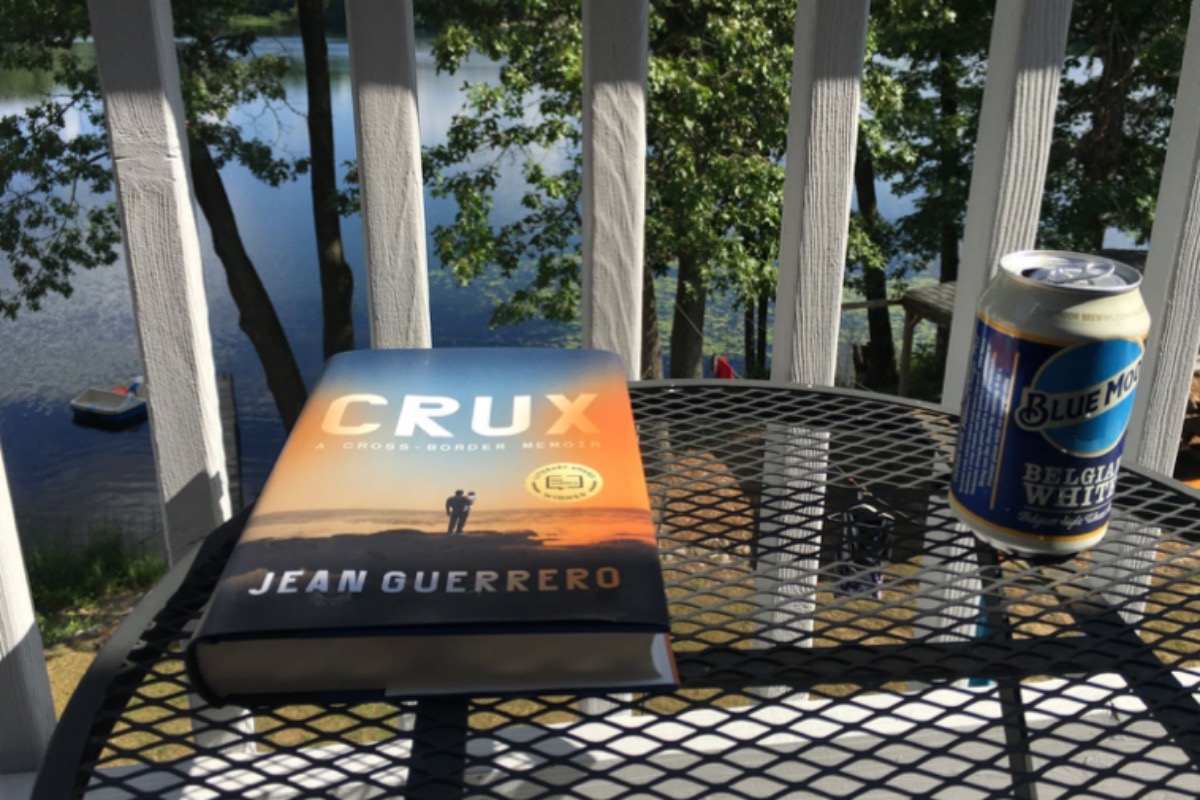

Courtesy of William D. Lopez
Journalist Jean Guerrero’s 2018 award-winning book, Crux: A Cross-Border Memoir, will be re-released in paperback on February 7. I read Crux on vacation in 2020 and wanted to provide a review for those thinking of picking up the paperback in the coming months. Spoiler: you should.
Published by One World, Crux follows Guerrero’s quest to better understand the life of her father, Marco Antonio Guerrero, who was diagnosed with schizophrenia when she was 11. Marco Antonio —a “genius at fixing, creating, and conjuring”— slowly slipped deeper and deeper into manias and hallucinations, eventually relinquishing his family responsibilities and fleeing to Asia and Europe before returning to Mexico.
Crux is a beautifully written book about how mental illness is perceived and treated across cultures and the inevitable self-exploration that comes with loving, protecting, and learning about your family and its history. Using the full range of her journalistic talents, Guerrero decides to learn all she can about her father’s ordeal. Her investigations take her deep into Mexico, where she meets with other relatives known for their clairvoyance and mysticism.
Guerrero writes in short, crisp sentences that make the book easy to put down and pick back up. The terse prose, however, never comes at the expense of rich scenes full of engaging characters and the tense and moving interactions between them. The writing is visceral, sensory, and transportive, and Guerrero is able to write blood, pain, and violence as well as she can write calm, resolution, and acceptance. She also writes of the metaphysical as aptly as she does the physical.
The book is divided into seven sections, with each corresponding to different parts of the Popol Vuh, the sacred Mayan text that is part mythology, part history of the Maya people. Through each section, Guerrero explores the blurring borders between realism and mysticism, science and magic, gifts and curses, and ultimately, the distance between one family member and the next.
Who should read this book:
- Those interested in cross-cultural perceptions of mental illness. Crux is ranked #161 on Amazon for books about schizophrenia. While Guererro’s quest seeks answers to her father’s disease, what she finds is a complicated and mixed perception of what mental illness means in different cultural contexts. While on one side of the border it’s called schizophrenia, on the other it’s more akin to shamanism. Crux will push the reader to think about who defines mental illness, under what circumstances, and how this shapes our treatment of it and other mental illnesses.
- Writers who want to write more sensory scenes. Crux is rich in visceral descriptions of tastes, sounds, and smells that provide context to the occasional scenes of violence and tension (the frog autopsy scene really got me). While the writing is smooth and sometimes lyrical, it is the descriptions of environments that most stuck with me and could serve writers wishing to hone their scene-writing.
- Journalists who want to integrate their identities into their writing. Guerrero is an Emmy-winning investigative reporter who currently writes as a columnist for the L.A. Times. While her investigative writing is exemplary, there are two aspects of her writing that I most appreciate. First, she continues to have her finger on the pulse of issues of race and class, often taking on complex topics like indigeneity, Blackness, and Latinidad (I particularly enjoyed her essay on Namor, the Mesoamerican anti-hero in Wakanda Forever). But, secondly, Guerrero is one of a handful of journalists who openly engage with their own views and perspectives in their writing —specifically, in Guerrero’s case, as a Latina— instead of pretending to maintain an objective distance. There continues to be a growing awareness that one is always writing from some point of view and with life experience. Acknowledging this can be a struggle for authors, but Guerrero navigates it well in both her books and columns.
***
William D. Lopez is a clinical assistant professor at the School of Public Health and faculty associate in the Department of Latina/o Studies at the University of Michigan. A Tejano of Mexican descent, he now lives and works in the midwest with his partner, children, and #pandemicpup. He is the author of the book Separated: Family and Community in the Aftermath of an Immigration Raid. Twitter: @lopez_wd


